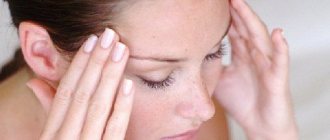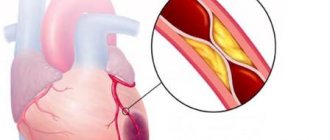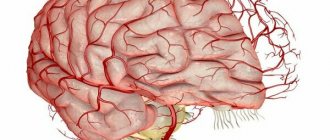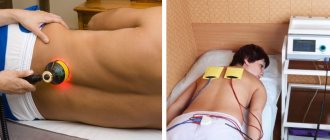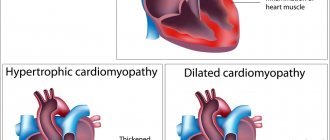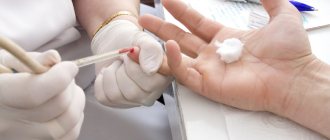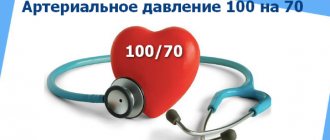Unpleasant sensations during VSD have different characteristics. A person may experience pressure surges, pain in the heart, rapid heartbeat, anxiety, difficulty breathing, increased body temperature, disturbances in the gastrointestinal tract, restless sleep with VSD, etc. One of the manifestations of VSD is tinnitus. It may also indicate the development of another disease (otitis media or cervical osteochondrosis), and therefore is subject to careful diagnosis. Information about what kind of pain during VSD worries the patient will help the doctor suspect the correct diagnosis, which is confirmed by examination.
Reliable diagnosis and high-quality treatment of VSD in Moscow is performed at the Yusupov Hospital. Extensive experience and high qualifications of doctors allow us to identify the causes of the disease and successfully eliminate it.
Causes of ear congestion
In addition to swelling caused by a cold, ears can become blocked due to some physical reasons:
- Pressure changes when flying on an airplane, riding in an elevator, riding on attractions;
- Getting water into the ear canal while swimming or diving;
- Rhinosinusopathy due to hormonal imbalance during pregnancy.
Also, conditions such as cerumen plug, deformation of the nasal septum, foreign body in the ear, hypertension, taking medications, osteochondrosis, etc. can be the causes of ear congestion.
Fainting
VSD with syncope (fainting) also refers to paroxysmal manifestations. This is a neurogenic type of VSD, the main role in the development of which is played by a sharp decrease in blood pressure. Short-term loss of consciousness is more often observed in young people with increased emotional lability. Fainting occurs under the influence of a specific factor (uncomfortable environment, change in ambient temperature, etc.). An attack is usually caused by the same factor, which is individual for each patient.
Often before an attack, the patient’s ears become blocked due to VSD. Presyncope with VSD can also be accompanied by suffocation, rapid heartbeat, and dizziness. Fainting is a particularly dangerous condition because a fall can cause serious injury. Therefore, VSD with this type of attack requires careful monitoring.
Symptoms of ear congestion
When the ear is blocked, a person’s well-being does not change, but he begins to perceive his own voice differently, external sounds seem muffled, and sudden changes in body position may be accompanied by dizziness and nausea.
If the sound is not perceived in full due to a mechanical obstacle, accumulation of sulfur, narrowing of the ear canal, etc., additional symptoms will be the same as when water gets in.
More complex problems associated with the spine and increased blood pressure can provoke:
- Noise and ringing in the ears;
- Feeling of heaviness in the head;
- Headaches and dizziness.
With Meniere's syndrome and otosclerosis, hearing decreases gradually.
Paroxysms and tinnitus with VSD
In 90% of cases, VSD manifests itself in paroxysms, that is, symptoms occur in the form of an attack. The trigger for paroxysm can be any irritant (stress, fear, change of environment, etc.) or an exacerbation of a chronic disease. The duration of an attack depends on many factors: its intensity, the general psychological state of the person, and environmental conditions. To stop an attack, in some cases it is enough to remove the irritant and create comfortable conditions for the person in which he will feel safe.
VSD with paroxysms has the following manifestations:
- ringing and noise in the ears;
- headache;
- fainting;
- blood pressure disorders;
- heartache;
- panic attack.
Noise in the ears and head, and migraine most often occur with VSD with migraine paroxysms. The condition is usually preceded by nausea and dizziness. The attack begins against a background of complete well-being and can last from several minutes to several hours.
Tremor with VSD can accompany disturbances in blood pressure, heart pain, and tachycardia. The presence of tremor is a sign of autonomic arousal. Additionally, the patient experiences severe sweating, rapid heartbeat, and redness of the face (people say “the face burns” with VSD).
A very unpleasant attack of VSD is a panic attack. A person experiences shortness of breath, suffocation, dizziness, increased heart rate, a feeling of a hopeless situation, and fear of death. Dilated pupils are noted with VSD.
This paroxysmal state is characterized by an increase in the level of adrenaline in the blood, acetylcholine and norepinephrine. An excess of these substances causes disruption of the autonomic system.
Such attacks provoke self-doubt and indecision in a person during VSD. The inability to control the paroxysmal state significantly impairs the quality of life. A person cannot attend desired events and places or perform certain types of activities due to fear of an attack. A person is constantly stressed, resulting in a “vicious circle”: stress provokes an attack, and an attack provokes stress. In some patients, depression develops against the background of paroxysmal conditions, and memory deteriorates during VSD.
When to go to the ENT doctor?
Constant ear congestion, even without pain, is a cause for concern. Treatment must be directed at the cause, which may be very serious. In severe cases, the patient may require surgery.
It is necessary to consult a doctor in cases where the feeling of congestion does not go away for a long time, the body temperature rises, there is pain and dizziness, any fluids are discharged from the ear, if the hearing loss was preceded by an injury or serious illness.
Insomnia
Insomnia and drowsiness with VSD are common clinical manifestations of nervous system dysfunction. As a result of insomnia, a person becomes irritable, lethargic, and develops chronic fatigue. Facial swelling with VSD can also be the result of insomnia.
The following are the main triggers for insomnia:
- stress;
- neurosis;
- depression;
- change of time zones;
- some medications.
Insomnia with VSD requires urgent treatment, since a prolonged lack of sleep and proper rest causes significant disruption of the functioning of the organs and systems of the body. Insomnia can cause exhaustion of the body - a serious condition that requires complex treatment.
Read also
Sulfur plug
What is a cerumen plug? Inside the ear canals there are glands that secrete a special secretion - sulfur.
This is a rather thick and sticky substance that protects the ear from dirt and dust. Ideally, it should... Read more
Earache
Ear pain is common among children, but it can also affect adults. Ear pain in adults and children can affect both one or both ears, but most often it is a one-sided process. Symptoms...
More details
Chronic tonsillitis
Does your throat often hurt? Do you suffer from sore throats one after another? Do you have a sore throat and bad breath in the morning? Are you familiar with similar situations? Then you shouldn’t wait for a miracle, but it’s better to immediately contact an ENT doctor.…
More details
Nasal congestion in a child
What causes nasal congestion in a child Nasal congestion in a child is a common occurrence. Most often, this problem is caused by viral infections, such as acute respiratory viral infections, influenza, and less commonly, nasal septum defects,…
More details
Otitis
What is otitis? Otitis is an ear disease in which inflammation develops, often with the formation of pus. It is provoked by infections that attack the body due to hypothermia, water getting into the ear or...
More details
Lower back pain
The cause of back pain during VSD, in particular in the lower back, is most often osteochondrosis of the lumbar region. Degenerative-dystrophic disease of the spinal tissue disrupts the functioning of the nerve roots, which, in turn, begin to transmit incorrect signals to the peripheral nerve endings. Thus, osteochondrosis causes symptoms of VSD.
Back pain with osteochondrosis with the VSD clinic has the following manifestations:
- increased heart rate;
- numbness of the limbs;
- heartburn, nausea;
- lack of air (a cough is often associated with VSD).
Osteochondrosis can develop not only in the lumbar area, but also affect other areas of the spine: the thoracic and cervical regions. VSD and tension in the neck are a consequence of cervical osteochondrosis. Its other symptoms are headache, dizziness, memory impairment, and constant fatigue.
Treatment of tinnitus with VSD in Moscow
In Moscow, VSD therapy is successfully performed at the Yusupov Hospital. Since VSD is more often a manifestation of some disorder in the physical or psychological state of a person, the pathology requires careful diagnosis. The modern equipment of the Yusupov Hospital allows for examinations of any complexity, which contributes to a quick and accurate diagnosis. Based on the examination data, the doctor (therapist, neurologist or other specialist) creates the most effective therapy that will eliminate unpleasant symptoms and cure the true cause of the pathology.
You can make an appointment with the clinic’s specialists by calling the Yusupov Hospital.
Our specialists
Tarasova Svetlana Vitalievna
Expert No. 1 in the treatment of headaches and migraines. Head of the Center for the Treatment of Pain and Multiple Sclerosis.
Somnologist.
Epileptologist. Botulinum therapist. The doctor is a neurologist of the highest category. Physiotherapist. Doctor of Medical Sciences.
Experience: 23 years.Derevianko Leonid Sergeevich
Head of the Center for Diagnostics and Treatment of Sleep Disorders.
The doctor is a neurologist of the highest category. Vertebrologist. Somnologist. Epileptologist. Botulinum therapist. Physiotherapist. Experience: 23 years.
Palagin Maxim Anatolievich
The doctor is a neurologist. Somnologist. Epileptologist. Botulinum therapist. Physiotherapist. Experience: 6 years.
Zhuravleva Nadezhda Vladimirovna
Head of the center for diagnosis and treatment of myasthenia gravis.
The doctor is a neurologist of the highest category. Physiotherapist. Experience: 16 years.
Mizonov Sergey Vladimirovich
The doctor is a neurologist. Chiropractor. Osteopath. Physiotherapist. Experience: 8 years.
Bezgina Elena Vladimirovna
The doctor is a neurologist of the highest category. Botulinum therapist. Physiotherapist. Experience: 24 years.
Drozdova Lyubov Vladimirovna
The doctor is a neurologist. Vertebroneurologist. Ozone therapist. Physiotherapist. Experience: 17 years.
Dyachenko Ksenia Vasilievna
Head of the center for the treatment of dizziness and balance disorders.
The doctor is a neurologist of the highest category.
Angioneurologist. Neurorehabilitation specialist. Physiotherapist. Candidate of Medical Sciences.
Experience: 19 years.Volkova Svetlana Anatolevna
Head of the Center for Parkinsonism and Extrapyramidal Diseases.
The doctor is a neurologist of the highest category. Epileptologist. Ozone therapist. Physiotherapist. Experience: 26 years.
Why do you feel dizzy with VSD and how to deal with it?
To understand the nature of the most frightening and incomprehensible symptom of VSD, you need to know that there are 2 types of dizziness: true and false. The first is caused by an organic disease, as a result of which the blood supply to the brain is disrupted. Another reason is a disease of the vestibular apparatus. In this case, we are talking about damage to the part of the brain that is responsible for the balance of the body. The blood vessels of the brain are compressed or narrowed. And the reason for this is a tumor, displacement of the spine, disruption of blood flow in the vessels due to a blood clot or due to atherosclerosis. The head may begin to feel dizzy even when the vestibular apparatus is affected by something from the outside, and for a long time. Examples include motion sickness on a bus or riding on a merry-go-round. True dizziness goes away as soon as the cause is eliminated. It does not appear at rest, which cannot be said about another type of this symptom.
There is no organic disease behind false dizziness. The reason why this sensation occurs is vasospasm in the brain. It occurs due to nervous stress. If we are talking about cases when the head begins to spin due to panic disorder or VSD, this is the type of dizziness that occurs. It is in no way associated with diseases of the vestibular apparatus, as well as with other diseases. Many doctors believe that the cause is an enlarged ventricle, uncharacteristic bends of the veins, perivascular spaces, spinal displacement or cervical osteochondrosis. But even after taking the prescribed medications, dizziness does not cease to torment the patient.
Feelings of false dizziness
If you feel dizzy and have been diagnosed with panic disorder or VSD, you feel that:
- Afraid of falling;
- You can lose consciousness at any moment;
- The gait is very unsteady;
- Consciousness is confused;
- There is a fog in my head, something is pressing;
- Headache.
Despite the abundance of sensations, the main thing remains the fear of dying, fainting, and not receiving the medical care that is so necessary at this moment.
Why do you feel dizzy?
The main reason is vasospasm in the brain, that is, their narrowing. When it comes to VSD, there is too much adrenaline in the body. It is released, and in excess, every time a person experiences stress or feels fear. A spasm occurs, insufficient oxygen does not reach the brain, and the cells experience starvation. As a result, the head becomes dizzy, and sometimes a person loses consciousness for a short period of time.
In addition to adrenaline, the cause of these symptoms can be low blood pressure. This pressure can be either constant or periodic. Its reduced level does not allow the required volume of oxygen to be delivered to brain cells. Starvation occurs again. There are not enough nutrients.
What is the cause of fainting during VSD?
A person faints when he experiences too much stress (nervous strain) and stands up abruptly, especially when he has been lying down for a long time. As in the case of dizziness, fainting with VSD is also false. They go away on their own, do not last long, and do not require treatment.
This is due to the fact that when a person faints, the body assumes a horizontal position, and the heart function returns to normal because less effort is required to deliver blood through the vessels to the brain. Consciousness returns to normal. Such fainting is dangerous only because there is a risk of injury during a fall.
If you suffer from similar symptoms of false fainting and dizziness, when you suddenly change your body position, for example, when getting out of bed, sit down for 5-10 seconds and then stand up.
The same should be done when you are stressed: if you are quarreling with someone, sit down, otherwise you will fall. Use sedatives for treatment, do not abuse coffee. Author: K.M.N., Academician of the Russian Academy of Medical Sciences M.A. Bobyr
Causes
The reasons that lead to this phenomenon can be different - from infections and inflammations to allergic reactions. It can also be caused by a foreign body getting into the ear. Anemia, high blood pressure, and other illnesses (including something as serious as Meniere's disease, a swelling of the inside of the ear canal) can cause a person to experience a humming, buzzing, or squeaking sound. Also, similar sensations can be caused by the use of alcohol and drugs, large doses of caffeine and certain medications. Sometimes tinnitus can occur after stress or loud noise. Excessive earwax can also cause tinnitus.
